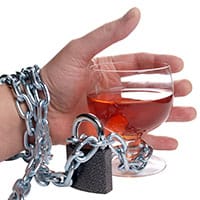Workaholism and alcoholism have a lot more in common than just similar names. They can have many of the same characteristics, such as feeling unable to control your behavior and neglecting other areas of your life. And they can cause many of the same consequences, such as loss of sleep and relationship conflicts. Fortunately, there’s another similarity: Effective treatments are available for overcoming both types of “–aholisms.” Here’s what research shows about how to recognize and conquer a dual addiction to alcohol and work.
Adding Another Addiction
Sometimes, workaholism and alcoholism occur side by side. In one study, young adults who worked 50-plus hours per week were two to three times more likely to have an alcohol problem than those who were unemployed. What’s the connection? The New Zealand researchers who conducted this study suggested a couple of possibilities: Working long, grueling hours is stressful, and some people may turn to alcohol to soothe their frazzled nerves. Others may use booze to fit into a workplace culture where people pride themselves on working extremely hard and playing harder. At other times, however, workaholism doesn’t start until people decide to stop drinking. Recovering alcoholics may throw themselves into their jobs as a distraction from the urge to drink. That can be a smart strategy in moderation. But if taken too far, it may lead to working compulsively and excessively. When this happens, people are simply replacing one addiction (alcohol) with another (work). Being addicted to work means more than simply having lots of ambition or a strong work ethic. It’s also different from needing to work two jobs to pay the bills. True workaholics feel internally driven to spend ever-increasing amounts of time and energy on their jobs. And they feel powerless to cut back when their health, happiness, relationships — often even their job performance — begin to suffer.
Warning Signs of Workaholism
How do you know when you’ve crossed the line from hard work to workaholism? Psychologist Cecilie Schou Andreassen and her colleagues at the University of Bergen in Norway set out to answer that question. Using data from more than 12,000 employees in a variety of industries, they developed a questionnaire for measuring work addiction. The questionnaire focuses on seven common signs of addiction. Below are examples of how they might be experienced by a workaholic:
- Work dominates your thoughts and behavior. You may devote a lot of energy to thinking about ways to free up more time for work.
- Working temporarily improves your mood. You may feel guilty, unworthy, anxious or depressed when not working, so you work to alleviate those feelings.
- You feel driven to work more and more. You may find that you frequently end up working much later than you had originally intended.
- You feel lousy if you suddenly stop or cut back on work. You may feel stressed rather than relaxed if you’re prevented from working on vacation.
- If you try to work less, there’s a tendency to backslide. You may have been told by others that you ought to work less, but you don’t heed their advice for long.
- Work interferes with your relationships and home life. You may rarely get around to hobbies, exercise or other leisure activities because you’re too busy working.
- Working too much causes other problems. You may develop health problems that can be related to overwork, such as high blood pressure or backaches.
Go back through the seven warning signs above, and substitute the words “alcohol” or “drinking” in place of “work” or “working.” You’ll quickly see how similar the two types of addictive behavior really are.
Working Yourself to Death
It may be true that a little hard work never hurt anyone — but an excessive amount of hard work can be quite harmful. Research has shown that workaholism is associated with a wide range of problems, including:
- Strained relationships with family and friends
- Mental health problems, such as stress, anxiety and depression
- Physical health problems, such as poor sleep, high blood pressure and weight gain
When you spend all your time at the office, you miss out on a lot at home. What’s ironic is that you may also be missing the boat at work. Researchers have found that there’s a big difference between people who have a work addiction and those who just love their jobs. While both groups often put in long hours, the workaholics don’t get much satisfaction from it. Instead, they feel driven to keep setting the bar higher and higher. In the end, this may leave them feeling burned out, exhausted and frustrated rather than proud of a job well done.
Working Out a Work Addiction
When you’re a recovering alcoholic, there’s another risk to consider: Workaholism is a sign that you haven’t actually resolved your addiction issues. In fact, they’re still a big part of your daily life. And that may leave you vulnerable to a drinking relapse. If alcoholism and workaholism are joint issues for you, it’s important to address both in treatment and recovery. Depending on the treatment approach and your specific needs, treatment for workaholism may help you:
- Explore your motivation and goals for change
- Manage your time and set limits on work
- Challenge irrational beliefs about work (for example, “I have to do all this stuff myself because no one else can do it right.”)
- Connect with others in a mutually supportive environment, such as at Workaholics Anonymous meetings
- Relax and find meaning outside of work
With a little help, you can regain control of your life, one workday at a time. By Linda Wasmer Andrews Follow Linda on Twitter at @lindawandrews




